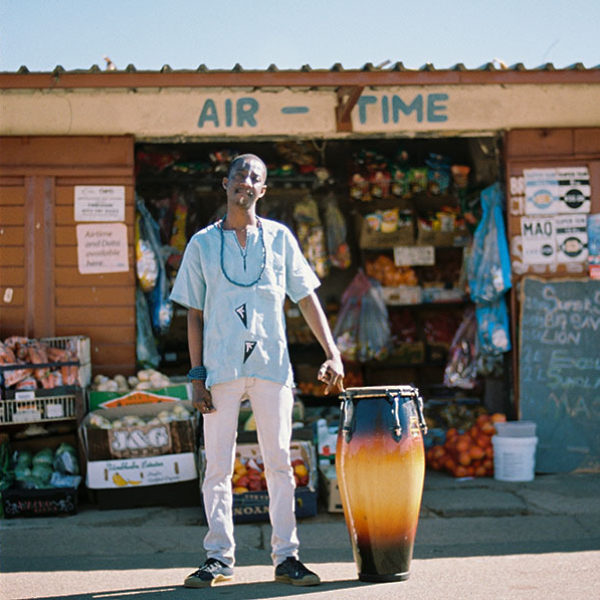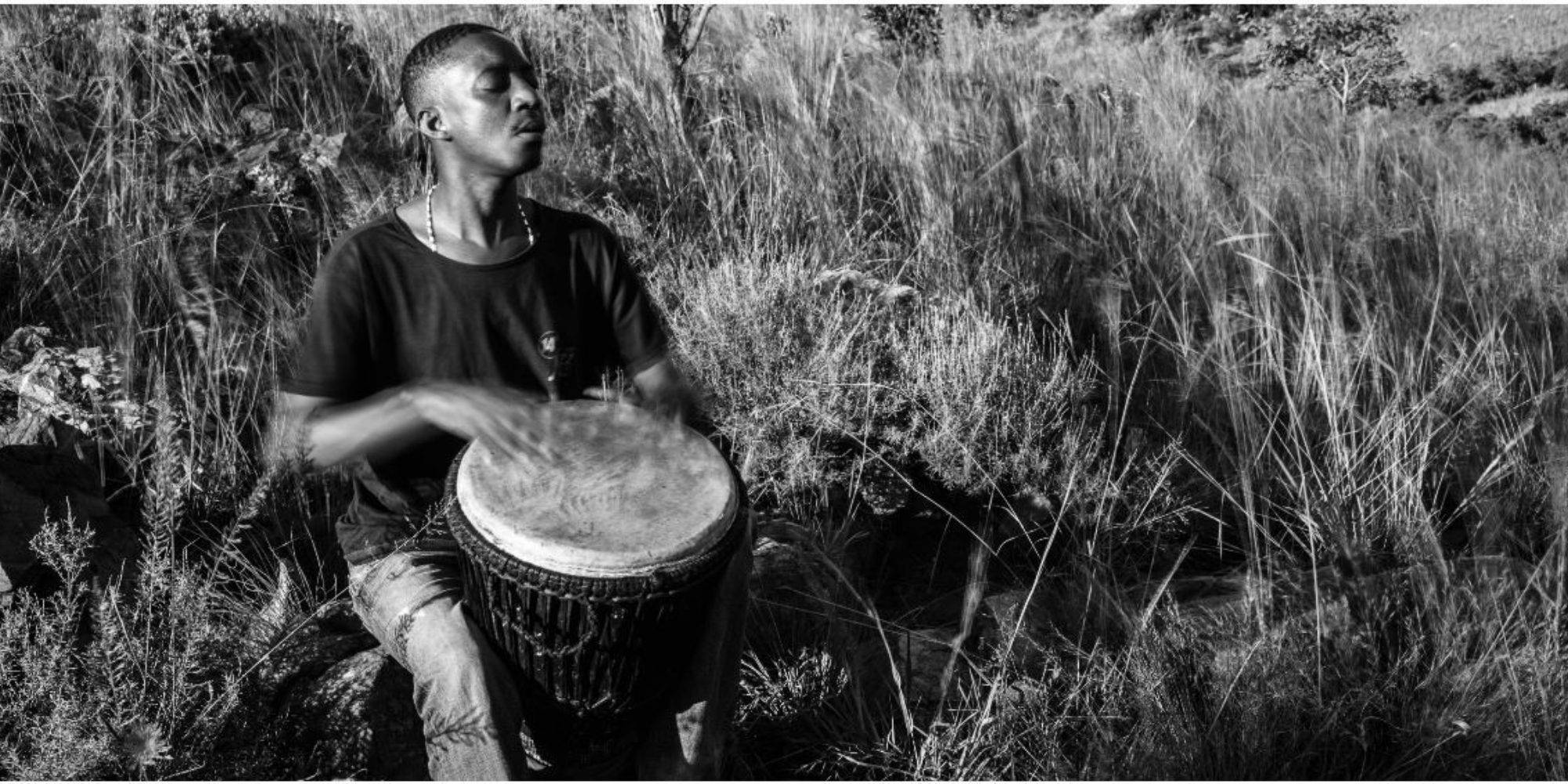Malombo as a genre is an example of convergent musical evolution. Thabang Tabane’s new album, Matjale, is a collection of rhythm-centric songs with sinewy guitar and melodic bass lines that could easily fit alongside New York underground dance pioneers, ESG, or the Krautrock improvisers, Can. But the album came to those sounds through malombo, through blood relations to the father of the genre, Tabane’s father, Philip Tabane.
Guitarist Philip Tabane pioneered Malombo under apartheid in South Africa starting in 1959 and performed right up until his death in May 2018. Although his group was called the Malombo Jazzmen, and he would go on to play with Herbie Hancock and Miles Davis, Tabane himself resisted comparisons to American jazz music. Behind the modern element of Tabane's electric guitar, malombo put South Africa—and, significantly, traditional instruments from the country’s black majority—front and center in the music.
Thabang prioritizes his album the same way. The malombo drums always feel right out in front. They may or may not be that much higher in the mix than drums typically are, but since they are pitched higher than a typical drum kit, and all the other instruments seem to take cues from them, they feel unusually central. Sibusile Xaba and Thulani Ntuli's respective guitar and bass lines bounce off Thabang.
Recorded in the Tabane backyard, the songs are more tightly structured than Philip’s Malombo. Only three of the songs are longer than five minutes, which is still enough time for Thabang to expand vocal phrases through repetition like, well, a jazz musician. Xaba’s guitar work is impeccable throughout, chasing Thabang and Dennis Moanganei Magagula who plays the djembe, both of whom are gifted enough to answer Xaba right back, melodically as well as rhythmically.
It’s such a fun record and it doesn’t stop being one just because it’s in a genre that is also inseparable from politics. On "Nyanda Yeni," the major-key guitar line slickly rides on the back beat. The song, though, is rearrangement of a traditional plea for rain and the video reappropriates footage from apartheid-era propaganda films. You can’t confuse Tabane’s generosity and playfulness as a composer for shallowness.
For an album recorded live with just a quartet, they demonstrate a lot of range. There’s a slow-burning build on “Ke Mnone” and fleet racing between Thabang and Xaba on “Babatshwenya.” The comparison to his father is probably unfair and probably inevitable, but it’s to Thabang’s credit that it’s fun to imagine him expanding his palette and playing with different ensembles. For now though, Matjale is a dynamic and smart release, one of my favorites of the year so far, and a worthy addition to a record shelf or playlist next to ESG, Can, and Philip Tabane.
Related Articles









